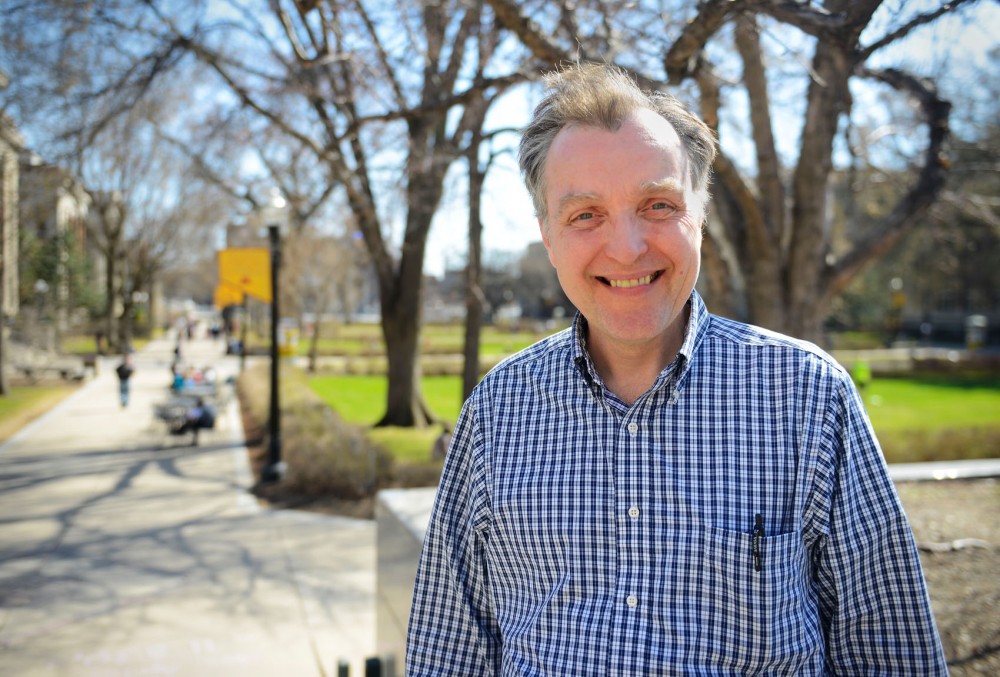Even after serving on the City Council for nearly a decade, Cam Gordon hasn’t strayed from his roots.
The Ward 2 City Councilman has served the University of Minnesota and surrounding neighborhoods since 2006, and his ecological and equity goals haven’t wavered — even after an influx of new leadership at City Hall this year.
“He looks at the world through green-tinted glasses,” said Jacob Frey, a freshman City Council member who also represents parts of the University area.
Since January, Gordon has worked alongside a new mayor and City Council to chart a new course. Still, he said, he’s keeping his guiding principles in mind.
Since first getting elected, Gordon has supported initiatives ranging from expanding ordinances for greenhouses to helping urban farmers, and now he said he’s working to further expand those ideas.
In January, the veteran City Council member became chair of a new City Council committee focused on health and sustainability issues. It’s currently pushing aggressive greenhouse gas reduction policies.
Earlier this year, the committee evaluated a study on how the city should organize its energy policies as city contracts with Xcel Energy and CenterPoint Energy come to an end this year.
The City Council will pursue shorter contracts, Gordon said, and will explore new collaborative approaches to achieving long-term environmental goals.
Other existing projects include making healthy foods more available to residents, Gordon said.
He’s drafting a mobile grocery store ordinance to allow vendors and farmers to more easily collaborate on selling food.
He said he’s also hoping a measure known as a “conservation district ordinance” will pass and allow neighborhoods to protect against unwanted development.
The proposal would likely affect the Prospect Park neighborhood and block growth that could affect the area’s character, without going so far as to classify the neighborhood as a historic district.
City Council members have unsuccessfully pushed the ordinance for years.
“There’s lots of work ahead,” Gordon said.
TCE in Como
Frey said Gordon connects with a wide range of stakeholders when he’s pursuing an issue, including the revelation last year that soil vapors containing trichloroethylene could be seeping into some Southeast Como homes.
Gordon reached out to Southeast Como residents who were affected by the problem. Jerod Greenisen, a member of the University’s Minnesota Student Association, said Gordon made it a point to help students.
Gordon championed a successful proposal in February that now requires Minneapolis landlords to tell tenants the results of environmental contamination testing on their properties — a change that was motivated by the problem in Southeast Como.
Besides pushing the new ordinance, Gordon said, he’s met with the Minnesota Pollution Control Agency and neighborhood organizations to determine effective strategies to mitigate TCE.
“There’s going to be some long-term cleanup that will permanently restore the area,” he said.
Gordon is active in the University District Alliance, a group of University, city and community leaders that meets once a month to discuss the needs of campus-area neighborhoods.
Elizabeth Dunens, who serves as the University’s Graduate and Professional Student Assembly delegate to the group, said Gordon used his role on the board to address the issue effectively.
“He was decisive, and he acted quickly,” Greenisen said.








